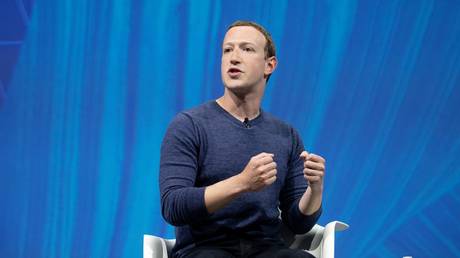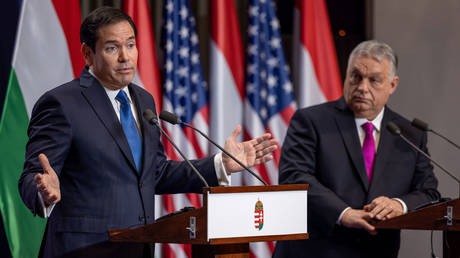
The Meta CEO has claimed that the White House pressured the company to remove certain pandemic-related content from social media
US President Joe Biden’s administration pushed Meta to “censor” some social media posts related to the Covid-19 pandemic, the company’s CEO, Mark Zuckerberg, has claimed.
In a letter to Republican Representative Jim Jordan on Monday and shared by the GOP caucus of the House Judiciary Committee, Zuckerberg acknowledged that “in 2021, senior officials from the Biden Administration, including the White House, repeatedly pressured our teams for months to censor certain COVID-19 content.”
He noted that those efforts applied, among other things, to humor and satire, adding that White House officials “expressed a lot of frustration with our teams when we didn’t agree.” Zuckerberg, however, stressed that the company had the final say on any moderation.
“Ultimately, it was our decision whether or not to take content down, and we made own our decisions, including COVID-19-related changes we made to our enforcement in the wake of this pressure,” the CEO said.
Meanwhile, Zuckerberg said he believed that the “government pressure was wrong, and I regret that we were not more outspoken about it,” adding that with the benefit of hindsight the company would not have made “some choices,” without giving further details.
In light of this revelation, the Meta CEO said he thought that “we should not compromise our content standards due to pressure from any administration in either direction,” assuring that “we’re ready to push back if something like this happens again.”
Zuckerberg also stated that he intends to remain politically “neutral” ahead of the November election, saying that he will not make contributions that could benefit either party this time.
Jordan, who chairs the Judiciary Committee, has for several months been leading an investigation into social media content moderation by the government to silence conservatives, as well as free speech in general.
The GOP faction of the committee touted the letter as a “big win for free speech,” suggesting that election integrity will benefit from there being “no more Zuck-bucks” in the form of contributions.
At the height of the pandemic, many social media platforms adopted strict moderation policies to delete what they perceived as misinformation and conspiracy theories related to the coronavirus. However, these policies have been criticized for influencing scientific discourse, including the debate over vaccine side effects and overall safety.




